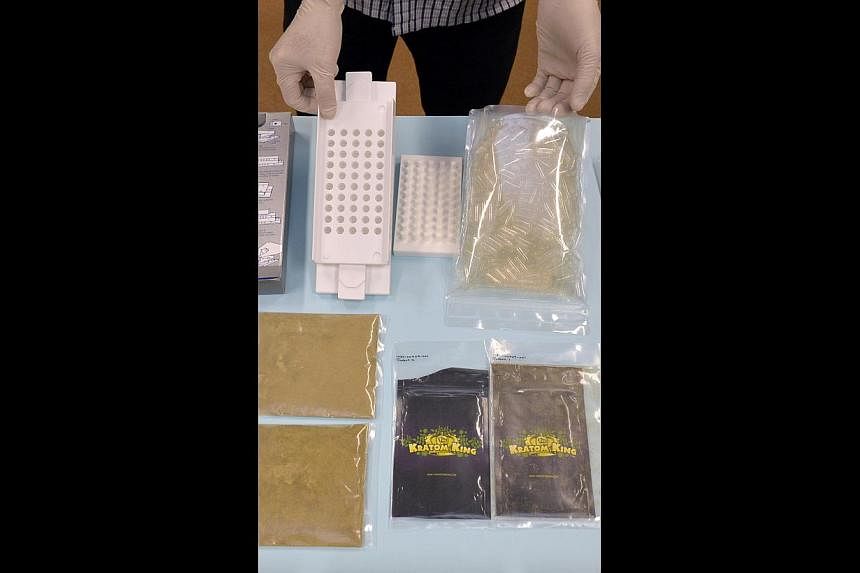Singapore has come in third in the Asia-Pacific region for the number of "legal highs" reported to the United Nations in the last five years.
Surprise figures show that 12 per cent of New Psychoactive Substances (NPS) were reported to the UN by the authorities here.
The man-made chemicals mimic the effects of class A drugs such as cocaine and cannabis.
Most new NPS - 31 per cent - were reported in Australia, followed by 17 per cent in New Zealand. The figures were revealed in a report from the UN Office on Drugs and Crime, which said there is "a large and established market for NPS".
The regional market has exploded nearly twentyfold, from just 11 unique substances reported in 2008 to almost 210 last year.
Addiction experts said the immense popularity of such drugs here is down to their availability online, and the legal grey area that surrounded them until only last month.
Dr Gomathinayagam Kandasami, chief of the Institute of Mental Health's Addiction Medicine Department, said: "It is very convenient and easier to get them (than illicit drugs) as they can be legally sold through the Internet and in the street in the form of air fresheners, plant products and chemical detergents."
Addiction therapist Tony Tan, from rehabilitation centre The Cabin in Thailand, said: "Before legislation against NPS was introduced, the Central Narcotics Bureau (CNB) could only confiscate and could not prosecute. That's why young people are kind of crazy about it." He said Singaporeans now make up a third of Asian NPS abusers at the Thai facility.
Within the last four years, they have increased to now equal the number of Singaporeans being treated there for traditional illicit drugs such as cocaine and heroin. NPS abusers are typically younger, between 17 and 30, and more Internet-savvy, he added.
More than 100 synthetic drugs were made illegal here - that is, classified under the First Schedule - at the start of this month while 13 new substances were classified under the Fifth Schedule, which means CNB officers have the power to seize them even though they are not categorised as a controlled drug yet.
A day after the law changed on May 1, two men were arrested for possession of synthetic cannabis "K2". One of them was later charged with trafficking the drug, by selling packets of "the fragmented vegetable matter" at Tampines Mall. The use of the Internet and postal system to ship such substances, which are engineered to lack the smell of cannabis, has made it tougher for drug enforcement agencies to detect their flow, said Mr Tan.
"Even with CNB introducing the 100+ substances into the First Schedule, they have to up their game and keep refreshing the list, because the chemists won't stop altering the chemical components to beat the law," he said. "The fact that two people were caught in a mall shows NPS have also hit the streets. Don't be surprised if you see many more cases."
While the Misuse of Drugs Act was enhanced last year to deal with NPS, their abuse here is likely to be more widespread than previously reported.
The UN report also identified a trend of pills in the region being sold as ecstasy, which actually contain "little or no MDMA" - the active ingredient.
Last year, CNB seized more than 7,000 ecstasy tablets, a 79 per cent increase on 2012.
A CNB spokesman said that illicit drugs, whether NPS or otherwise, often contain adulterants of "unknown nature", adding that: "Abusers are none the wiser."
Mr Tan said that while the typical recovery period for a cannabis or amphetamines abuser is 10 to 14 days, NPS abusers can take as long as a month.
"NPS are definitely more unpredictable and patients recovering from using them exhibit more psychotic episodes," he said. "There is a greater risk of long-term mental health problems even as compared to methamphetamine use."


